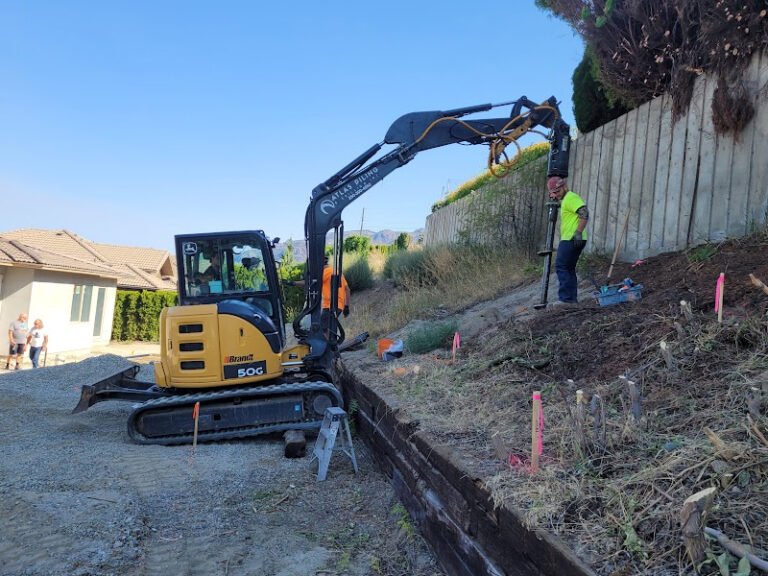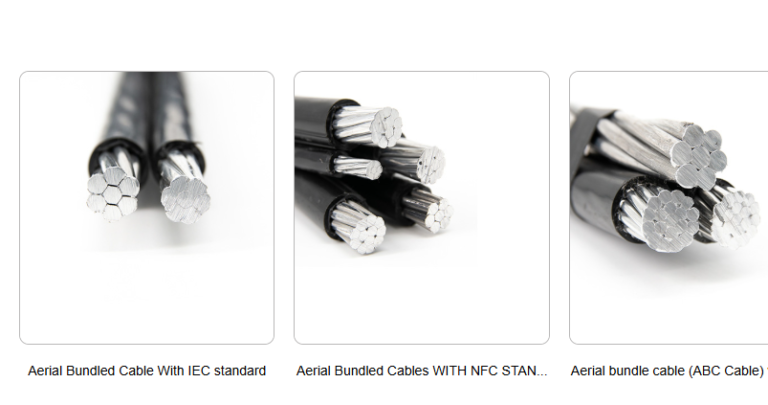The rise of decentralized finance (DeFi), non-fungible tokens (NFTs), and blockchain-based platforms has revolutionized the way people interact with digital assets. While these innovations offer tremendous opportunities, they also come with significant risks. Smart contracts self-executing programs on the blockchain are at the core of most crypto projects. However, vulnerabilities in smart contract code can lead to financial losses, exploits, and even project collapse. In 2025, as crypto adoption continues to surge, smart contract auditing has become a critical tool for protecting investments, maintaining trust, and ensuring long-term sustainability.
Understanding Smart Contracts and Their Role in Crypto
Smart contracts are automated digital agreements that execute predefined actions when certain conditions are met. They eliminate the need for intermediaries and enable decentralized operations. Common use cases include:
-
DeFi protocols: Lending, borrowing, and yield farming platforms rely on smart contracts to manage funds securely.
-
NFT marketplaces: Smart contracts govern minting, buying, selling, and royalty distribution.
-
Token issuance and governance: Projects use smart contracts for token distribution, staking, and voting mechanisms.
While smart contracts auditing enable automation and efficiency, any coding flaws or vulnerabilities can be exploited by malicious actors, leading to substantial financial loss for users and investors.
Why Smart Contract Auditing is Essential
1. Detecting Vulnerabilities Before Deployment
Smart contract audits identify bugs, logic errors, and security vulnerabilities before deployment. Common issues include reentrancy attacks, which allow attackers to repeatedly call a function and drain funds; integer overflows/underflows from incorrect mathematical operations; access control issues allowing unauthorized actions; and front-running vulnerabilities exploiting transaction order. Detecting these early prevents costly exploits, protects investor funds, and reduces reputational risk.
2. Building Investor Confidence
A smart contract audit signals reliability and professionalism. Investors are more willing to support projects demonstrating rigorous security measures. In 2025, as crypto markets mature, trust is a key differentiator. Audit reports provide evidence that experts have thoroughly examined the project, reinforcing confidence among retail and institutional investors.
3. Ensuring Regulatory Compliance
With growing regulatory scrutiny of DeFi platforms, audits demonstrate proactive risk management and adherence to emerging standards. They help mitigate legal challenges and are often required for listings on reputable exchanges or participation in institutional investment programs, ensuring broader market access and legitimacy.
4. Minimizing Financial Losses
Exploited smart contracts can cause catastrophic losses. High-profile incidents like the DAO hack show the consequences of unverified code. Audits provide a crucial defense layer, safeguarding investors’ assets and the project’s reputation. Preventing losses also maintains long-term trust and community confidence, vital for a project’s success.
Components of a Comprehensive Smart Contract Audit
1. Manual Code Review
A thorough audit begins with an experienced team manually inspecting the smart contract code. Manual review allows auditors to identify vulnerabilities, logic flaws, and potential exploits that automated tools might miss. This step is critical for detecting nuanced issues, such as complex interactions between functions, hidden reentrancy possibilities, or subtle permission misconfigurations. Manual inspection ensures a deep understanding of the contract’s architecture and highlights areas that require focused attention.
2. Automated Testing
Automated testing tools such as MythX, Slither, and Echidna simulate transactions, analyze code behavior, and detect common vulnerabilities like integer overflows, underflows, or access control issues. Automated analysis complements manual review by efficiently scanning large codebases for known patterns of risk. Combined with manual inspection, it ensures that both common and complex vulnerabilities are thoroughly examined before deployment.
3. Security Analysis and Reporting
After manual and automated reviews, auditors provide a detailed security report. This report categorizes vulnerabilities by severity, outlines potential impact, and offers actionable recommendations for remediation. The report serves as a roadmap for developers, guiding them through fixes and prioritizing critical issues. Clear documentation also demonstrates transparency and accountability to investors and stakeholders.
4. Verification and Validation
Once developers implement the recommended fixes, auditors re-evaluate the code to confirm that vulnerabilities have been resolved and no new issues have emerged. Verification and validation ensure that the contract is robust, secure, and ready for deployment. This step provides confidence that the smart contract behaves as intended under various scenarios and that prior weaknesses have been fully addressed.
5. Continuous Monitoring
Some comprehensive audits extend beyond deployment with continuous monitoring of the smart contract. Post-deployment monitoring tracks suspicious activity, detects potential exploits, and observes unusual transaction patterns. This ongoing oversight adds an extra layer of security for investors, enabling projects to respond proactively to threats and maintain trust in the ecosystem.
Case Studies: How Audits Prevented Major Losses
Case Study 1: DeFi Lending Platform
A new DeFi lending protocol scheduled a smart contract launch without audits. Preliminary internal tests failed to detect a reentrancy vulnerability. However, after commissioning a professional audit, the team discovered the flaw and patched it before launch. This prevented a potential loss of $5 million in user deposits and safeguarded investor trust.
Case Study 2: NFT Marketplace
An NFT marketplace integrated an audit into its minting smart contract. Auditors identified an integer overflow issue that could have allowed unauthorized NFT minting. The fix ensured that early adopters and investors could participate safely, enhancing the platform’s credibility and long-term adoption.
Case Study 3: Governance Token Launch
A blockchain project preparing for a governance token IDO included a security audit to examine voting and staking smart contracts. The audit uncovered access control gaps that could have allowed voting manipulation. Correcting
How Smart Contract Auditing Protects Investors
1. Safeguarding Funds
The primary benefit of a smart contract audit is the direct protection of investor capital. Audits identify vulnerabilities, logic flaws, and potential exploits before deployment, reducing the risk of hacks, fund loss, or unauthorized access. By addressing these issues early, projects minimize financial exposure and provide investors with greater assurance that their assets are secure. This proactive approach not only protects individual investors but also safeguards the broader ecosystem from cascading losses due to compromised contracts.
2. Enhancing Transparency
A comprehensive audit report offers clear, verifiable insights into the smart contract’s security, logic, and functionality. Transparency in reporting allows investors to see exactly how the contract operates and what risks have been mitigated. Projects that openly share audit results demonstrate accountability, professionalism, and a commitment to safeguarding community funds, which builds investor trust. Greater transparency also encourages industry standards, as projects set examples for best practices in security and responsible governance.
3. Supporting Decision-Making
Investors rely on audit reports to make informed decisions about participation in token sales, staking programs, or governance initiatives. Audited projects are generally perceived as more credible and trustworthy than unaudited ones. Providing detailed audit results enables investors to assess risk, evaluate project integrity, and confidently commit funds, thereby fostering a stronger, more engaged community. Audit reports also allow institutional investors to participate with confidence, expanding the project’s funding potential.
4. Promoting Long-Term Sustainability
By proactively addressing security and functionality issues, audited projects are less likely to experience hacks, regulatory complications, or reputational damage. This ensures the long-term protection of investor assets and strengthens the project’s credibility. A strong security foundation supports sustainable growth, encourages continued participation, and enhances the project’s overall resilience in a competitive crypto landscape. Additionally, consistent auditing practices can foster innovation, as teams can focus on feature development knowing the underlying smart contract is secure.
Choosing the Right Smart Contract Auditing Firm
Selecting a reputable smart contract auditing firm is a critical decision for any crypto project. The right firm not only identifies vulnerabilities but also provides actionable guidance, ensuring the project’s security, credibility, and long-term success.
Experience and Expertise
Choose firms with a proven track record in auditing DeFi protocols, NFT platforms, or token contracts. Experienced auditors understand the nuances of smart contract logic, blockchain network vulnerabilities, and emerging attack vectors. Their expertise ensures thorough inspections and increases the likelihood of detecting complex issues that less experienced firms might overlook.
Transparency
A reliable auditing firm should provide clear methodologies, detailed risk assessments, and comprehensive reports. Transparency in the auditing process allows project teams and investors to understand identified vulnerabilities, recommended fixes, and residual risks. This clarity fosters trust and demonstrates the firm’s professionalism and commitment to thorough evaluation.
Community Reputation
Positive feedback from previous clients and recognition within the crypto community are strong indicators of a firm’s reliability. Engaging a well-regarded auditor reassures investors that the project has been thoroughly vetted and adheres to industry best practices. Community recognition also enhances the project’s credibility and can influence adoption and investor confidence.
Comprehensive Services
Top auditing firms offer a full suite of services, including manual code review, automated testing, verification, and post-deployment monitoring. Comprehensive audits not only address immediate vulnerabilities but also provide ongoing security oversight, ensuring the smart contract remains robust against evolving threats.
Emerging Trends in Smart Contract Auditing
The landscape of smart contract auditing is evolving rapidly as blockchain technology and investor expectations advance. New trends are enhancing audit efficiency, accuracy, and ongoing security, ensuring projects remain robust in a dynamic environment.
AI-Powered Audits
Artificial intelligence is increasingly being integrated into auditing processes. AI tools can quickly analyze large codebases, detect complex vulnerabilities, and identify patterns that may be missed by traditional methods. By automating repetitive analysis and highlighting high-risk areas, AI accelerates audits, reduces human error, and enhances overall accuracy. This trend allows projects to deploy secure contracts faster while maintaining high standards of safety.
Formal Verification
Formal verification applies mathematical proofs to validate the correctness of smart contracts. By rigorously analyzing logic and expected behavior, formal verification can eliminate critical errors and ensure contracts function exactly as intended under all conditions. This approach is especially valuable for high-stakes applications in DeFi, where even minor flaws can lead to significant financial losses.
Continuous Auditing
Post-deployment monitoring is becoming a standard practice in comprehensive audits. Continuous auditing tracks smart contract activity in real time, identifying suspicious transactions, emerging exploits, or unexpected behavior. This proactive oversight provides ongoing security assurance, protecting both investors and the project’s reputation in an ever-changing market.
Integration with IDO/DeFi Launch Platforms
Many IDO and DeFi launch platforms now require verified smart contract audits as part of their listing process. This integration emphasizes the importance of audits for investor protection and project credibility. By mandating audits, these platforms ensure that listed projects meet minimum security standards, increasing trust and facilitating wider participation in token sales and staking programs.
Conclusion
As cryptocurrency adoption grows and blockchain applications become increasingly complex, smart contract auditing has emerged as a critical component of investor protection in 2025. Audits safeguard funds, enhance transparency, build trust, and minimize the risk of costly exploits. By detecting vulnerabilities, ensuring compliance, and supporting informed decision-making, smart contract audits protect both investors and the long-term sustainability of crypto projects.
For investors, participating in audited projects is no longer optional—it is a vital risk management strategy. For developers and project teams, integrating auditing into the development lifecycle demonstrates professionalism, builds credibility, and attracts committed, long-term supporters.





